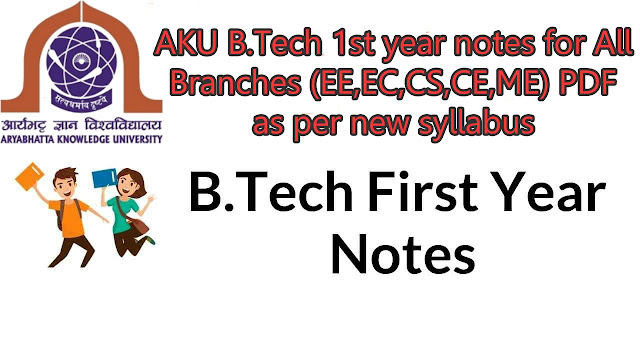NPTEL Soft Skill Development Week 7 Assignment Answers 2024
As you delve into Week 7 of the assignment, it's crucial to grasp the intricate nuances and master the concepts presented. This article serves as your compass, guiding you through the NPTEL Soft Skill Development Week 7 Assignment Answers 2024, ensuring a profound understanding and successful completion of the tasks ahead.
Exploring Communication Dynamics
Communication is the cornerstone of success in any endeavor. From verbal articulation to non-verbal cues, mastering communication dynamics is paramount. In Week 7, delve into the intricacies of effective communication strategies, encompassing both verbal and non-verbal facets.
NOTE:- Answers will be updated shortly and it will be notified in our Youtube & Telegram Group. So Join Now
1. Ancient Greek philosophy lacks persuasive potential owing to their lack of knowledge about modern scientific discoveries.
(a) True
(b) False
Answer: (b) False
2. Leadership is a communicative relationship between one person and others, such that when one gives a direction, and another gladly carries it out.
(a) True
(b) False
Answer: (a) True
3. The Yale attitude change approach follows a more complex paradigm of persuasion than the cognitive response model.
(a) True
(b) False
Answer: (a) True
4. Which of the following is not a component of motivation?
(a) Direction
(b) Effort
(c) Persistence
(d) Persuasion
Answer: (d) Persuasion
5. __________________ is a fascinating aspect of human social life. If we treat people right, they will treat us right – at least ninety per cent of the time.
(a) Persuasion
(b) Negotiation
(c) Communication
(d) Discussion
Answer: (a) Persuasion
6. In which of the following negotiating styles, individuals easily give the other person concession in the hope of strengthening their relationships but tend to neglect their own needs in favor of helping the other person.
(a) Avoider negotiating style
(b) Compromiser negotiating style
(c) Accommodator negotiating style
(d) Problem solver negotiating style
Answer: (c) Accommodator negotiating style
7. What are the motivational factors used by the effective leaders to increase employee motivation by motivating the team members?
(a) Appreciation
(b) Involvement
(c) Awareness of personal situations
(d) All of the above
Answer: (d) All of the above
8. Consider the following statements.
A: Persuasion is an honest form of manipulation.
B: Brainwashing is a subset of manipulation.
(a) A and B are true
(b) A is true but B is false
(c) B is true but A is false
(d) Both A and B are false
Answer: (b) A is true but B is false
9. Which of the following characteristics determine the leadership style of a task leader?
A. Always makes sure the decisions are taken properly
B. Always is charged with proper direction to fulfill the tasks of the group
C. Always make sure the group reaches a conclusion at the end of the meeting
(a) Only A is correct
(b) Only A and B are correct
(c) Only A and C are correct
(d) All A, B, and C are correct
Answer: (b) Only A and B are correct
10. Which of the following statements about motivation is correct?
A. Motivation is a psychological force that contributes to a person’s degree of commitment
B. Motivation includes drives and desires for goal attainment that regulate the direction, intensity, and persistence of human action.
C. The motivation of each person changes from time to time even if s/he may continue to behave in the same way.
(a) Only A is correct
(b) Only B is correct
(c) Only B and C are correct
(d) All A, B, and C are correct
Answer: (d) All A, B, and C are correct
11. Which of the following are the contemporary issues related to negotiation?
A. The role of personal traits
B. The effect of cultural difference
C. The use of third parties to help resolve differences
(a) Only A and B are correct
(b) Only B and C are correct
(c) Only A and C are correct
(d) All A, B, and C are correct
Answer: (d) All A, B, and C are correct
12. Consider the following statements.
A: The same argument can be interpreted as persuasive by someone, and as manipulative by another.
B: The authority of the person trying to persuade us depends on our liking of that person.
(a) A and B are true
(b) A is true but B is false
(c) B is true but A is false
(d) Both A and B are false
Answer: (a) A and B are true
13. Which among the following are symptoms of demotivated people?
A. Absenteeism
B. Increased accidents
C. Wastage of raw materials
D. Sloppy work habits
(a) Only A is true
(b) Only A, B and D are true
(c) Only B, C and D are true
(d) All A, B, C, and D are true
Answer: (d) All A, B, C, and D are true
14. Fear appeal may fail when there is
(a) illusion of invulnerability
(b) optimism bias
(c) too little to fear
(d) All of the above
Answer: (d) All of the above
15. Consider the following statements.
A: Audience personality trait is not constrained by considerations of gender.
B: Hesitant language has less credibility.
C: Usage of intense metaphors should be avoided in persuasive arguments.
(a) All A, B and C are true
(b) Only C is true
(c) Only B and C are true
(d) None of the above
Answer: (a) All A, B and C are true
Understanding Verbal Communication Techniques
Unlock the power of words and harness the potential of verbal communication. NPTEL Soft Skill Development Week 7 Assignment Answers 2024 delves into various verbal communication techniques, including:
Active Listening: Actively engage with your peers, absorbing their perspectives and insights.
Clarity and Conciseness: Articulate your thoughts with clarity and conciseness, ensuring effective message delivery.
Empathetic Communication: Foster empathy in your communication, understanding the emotions and sentiments of others.
Mastering Non-Verbal Communication Cues
Beyond words, lies the realm of non-verbal communication cues. Explore the subtleties of non-verbal communication techniques, encompassing:
Body Language: Utilize positive body language to convey confidence and assertiveness.
Eye Contact: Establish meaningful connections through maintaining appropriate eye contact.
Gestures and Posture: Harness the power of gestures and posture to reinforce your message and presence.
Nurturing Leadership Skills
Leadership transcends mere authority; it embodies inspiration, vision, and empowerment. NPTEL Soft Skill Development Week 7 Assignment Answers 2024 delves into the multifaceted realm of leadership, equipping you with the tools to lead with efficacy and integrity.
Visionary Leadership Principles
Embark on a journey of self-discovery and visionary leadership principles, including:
Strategic Planning: Develop a strategic vision, outlining clear objectives and pathways to success.
Inspirational Motivation: Inspire and motivate your team, fostering a culture of innovation and excellence.
Adaptive Leadership: Navigate through challenges with resilience and adaptability, embracing change as an opportunity for growth.
Fostering Collaborative Engagement
Collaboration lies at the heart of effective leadership. Explore strategies to foster collaborative engagement, such as:
Team Building: Cultivate a cohesive team environment, celebrating diversity and leveraging collective strengths.
Conflict Resolution: Navigate conflicts constructively, fostering dialogue and consensus-building.
Effective Delegation: Delegate responsibilities effectively, empowering team members and fostering accountability.
Cultivating Emotional Intelligence
Emotional intelligence is the cornerstone of interpersonal effectiveness and self-awareness. NPTEL Soft Skill Development Week 7 Assignment Answers 2024 delves into the realm of emotional intelligence, fostering self-discovery and empathetic engagement.
Self-Awareness and Self-Regulation
Embark on a journey of self-discovery, cultivating self-awareness and self-regulation through:
Emotional Self-Awareness: Recognize and understand your emotions, fostering introspection and personal growth.
Impulse Control: Exercise restraint and impulse control, navigating through challenging situations with composure.
Stress Management: Develop coping mechanisms to manage stress effectively, promoting resilience and well-being.
Empathy and Social Skills
Forge meaningful connections through empathy and social skills, including:
Empathetic Listening: Listen actively and empathetically, validating the experiences and emotions of others.
Social Awareness: Cultivate social awareness, understanding the dynamics of interpersonal relationships and group dynamics.
Conflict Resolution: Navigate conflicts with empathy and diplomacy, fostering constructive dialogue and mutual understanding.
NPTEL Soft Skill Development Week 7 Assignment Answers 2024
Dive into the NPTEL Soft Skill Development Week 7 Assignment Answers 2024, unlocking a treasure trove of insights and solutions to propel your professional journey forward. Explore the intricacies of effective communication, visionary leadership, and emotional intelligence, embracing the transformative power of soft skills development.
FAQs
What is the significance of soft skills development in today's professional landscape?
Soft skills development is integral to success in today's competitive job market, encompassing communication, leadership, and interpersonal skills essential for navigating diverse professional settings.
How can I enhance my communication skills effectively?
To enhance your communication skills, practice active listening, clarity in expression, and empathetic communication. Engage in meaningful dialogue and seek feedback for continuous improvement.
What qualities define an effective leader?
Effective leaders demonstrate vision, integrity, and the ability to inspire and empower others. They exhibit resilience, adaptability, and a commitment to fostering collaboration and innovation.
How does emotional intelligence contribute to professional success?
Emotional intelligence fosters self-awareness, empathy, and social skills, essential for navigating interpersonal dynamics and fostering productive relationships in the workplace.
What strategies can I employ to manage stress effectively?
To manage stress effectively, practice mindfulness, engage in physical activity, maintain a healthy work-life balance, and seek support from peers and mentors.
How can I improve my conflict resolution skills?
To improve conflict resolution skills, foster open communication, active listening, and empathy. Seek common ground, focus on solutions rather than blame, and strive for win-win outcomes.
Conclusion
Embark on a transformative journey of self-discovery and professional growth with NPTEL Soft Skill Development Week 7 Assignment Answers 2024. Unlock your potential, embrace the power of effective communication, visionary leadership, and emotional intelligence, and chart a course towards success.
.jpeg)




